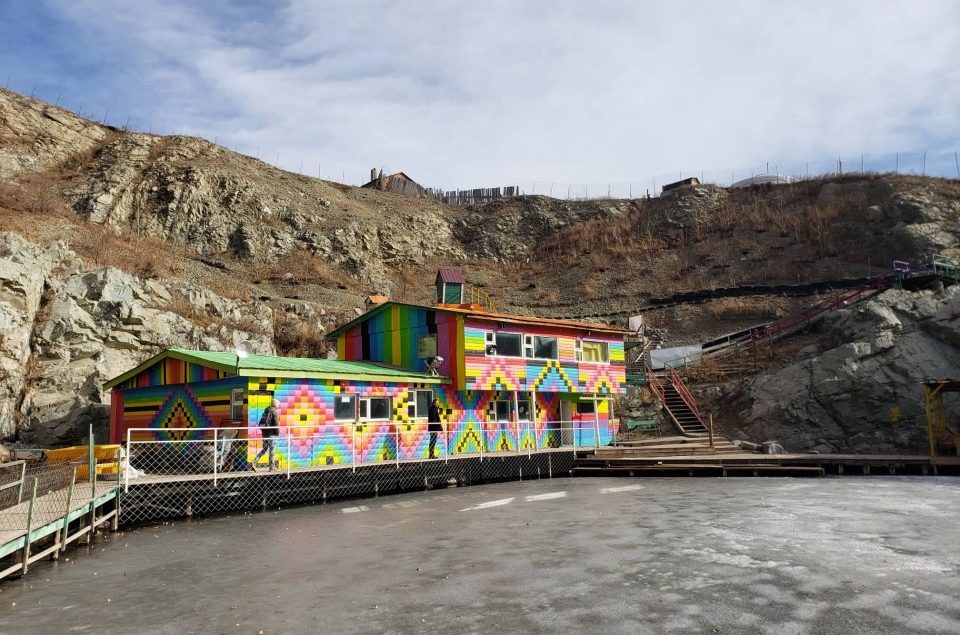European Spaces of Culture: A blueprint for a Cultural Team Europe

In this blog entry, Gabrielle Bernoville explores the potential of the EUNIC-led project “European Spaces of Culture” for EU International Cultural Relations. Taking stock of the second EUNIC call for ideas, it focuses on the six selected pilot spaces and sketches ways to scale up these models into a Cultural Team Europe approach.
Gearing up EU global cultural strategy
The “European Spaces of Culture” project is a pilot-action run in the spirit of a partnership agreement between EUNIC, the European Commission and the EEAS in December 2018. In its first 2019 call for ideas, six pilot projects were awarded €50.000 to experiment new European cultural relations in Sri Lanka, Mongolia, the Silicon-Valley (U.S.A.), Ethiopia, West Africa and Latin-America.
Historically, EU Institutions have been described by researchers as ill-equipped to engage with the global competitive tussle for soft power (see also article 6 of the Treaties on subsidiarity and the list of references below). Yet the 2016 EU Joint-Communication “Towards an EU strategy for international cultural relations stated its readiness to act on the global cultural relations stage through new and less contentious channels of engagement with citizens across the world.
The Preparatory Action “European Houses/Spaces of Culture” is the first EUNIC-led multi-country cultural programming initiative of the EU in third countries, aiming at implementing this new approach via the explicit opening of European cultural spaces.
Equipping EU officials with the adequate tool set to address social challenges in third countries
In spite of their diversity, all six pilot spaces seek to generate new thinking patterns on the role of arts and culture in our societies.
They embody a pioneering Cultural Team Europe Approach. The Spaces for culture test new collaborative models of cultural cooperation, going beyond the “showcasing” approach and bringing together EU Delegations, local civil society, private partners and EUNIC members.
- They operate in line with the core values of the Cultural Relations approach. Providing “services to the local population”, they follow human-centered participative bottom-up methods, based on local consultation and co-creation. As (physical or virtual) “homes for all” they eventually fulfill former HR/VP Federica Mogherini’s wish to establish “shared places where people come together on an equal footing”.
- Each project engages in some culture’s “Silent Wars”: Culture for Community building, Fair artist remuneration and working conditions, Ecological Emergency Consciousness and Culture for economic and political stability.
Scaling up EUNIC’s project: the way to go
After launching a second call for ideas early 2021 to fund ten new projects EUNIC will have to overcome three main delivery challenges.
- First, although the pilot Spaces of Culture have withstood the drawbacks of the Covid-19 pandemic ingeniously, their developments might be put at risk by the succession of lockdown measures, budget cuts and already vulnerable economic settings.
- Second, the EUNIC model of Spaces of Culture is still small in scale, experimental and fragile and will require resilience-building.
- Third, the success of the projects’ shift to digital tools will depend on the National Institutes’ ability to strengthen their digital literacy.
The sustainability of the European spaces of culture initiative will rely on a shared vision and a clear joint global cultural strategy.
The European Commission, the EEAS and EUNIC have already ambitiously and pragmatically reviewed their partnership agreement in early 2021. EUNIC Global is also foreseeing some internal restructuring with a shift of presidencies and the appointment of Gitte Zschoch, current EUNIC Global director, to the position of German ifa General Secretary in October 2021.
5 tips to navigate European Spaces of Culture in the New Normal
1. Supporting European Spaces of Culture’s potential and shoring up a Cultural Team Europe Approach, through renewed political impetus and cultural relations training frameworks. Providing EU Delegations, EU Officials and EUNIC members’ staff with specific cultural relations training to improve their literacy of the new strategic approach to EU international cultural relations. Tailoring training offer and seminars to the needs and regional specificities of each National Institute and EU Delegation.
2. Enhancing know-how, best practices sharing and peer-review between pilots projects and applicants to the second call, providing applicants and grantees with assistance and advice on how to carry out their project in a pandemic world. Offering assistance in the grant-making to EUNIC Members, networking tools and platforms for pilot projects, applicants and grantees, to withstand a still incomplete awareness of the new strategic approach to EU international cultural relations.
3. Fostering a more inclusive representation of National Cultural Institutes active in the project will require capacity-building to incentivise EUNIC’s small and medium-sized members to seize collaboration opportunities, take ownership and get on board alongside more influential EUNIC members. Contracting external experts would enable small National Cultural Institutes to build their skills set and ensure a stable representation within EUNIC clusters.
4. Gathering a task-force of independent experts focusing on the sustainability indicators of European Spaces of Culture’ models. In light of EUNIC Global’s human capacities, establishing a task force composed of independent experts or organisations might be beneficial in defining sustainability M&E indicators and processes to pave the way for necessary adjustments in the second and third phases of the project.
5. Uncovering complementary sources of funding and private sector contributions. Researching and presenting alternative sources of funding for the European Spaces of Culture to ensure its financial sustainability beyond the existing limited EU funding scheme and EUNIC support.
culture Solutions is ready to provide EUNIC Members with knowledge and expertise in the EU international cultural relations field.
In 2021, as per our status and cS theory of change, we are happy to support new communities of practice, run focused research and support project implementation. You can contact us directly.
List of references:
Minnaert T (2014). Footprint or fingerprint: international cultural policy as identity policy, International Journal of Cultural Policy, 20:1, 99-113, DOI: 10.1080/10286632.2012.722997, 2014.
Börzel T, Risse T (2009). Venus Approaching Mars? The European Union’s Approaches to Democracy Promotion in Comparative Perspective. Available at: 10.1057/9780230244528_2, 2009
EUNIC (2020). Global impact of Covid-19 on EU National Institutes for Culture. https://drive.google.com/drive/folders/1cs1iJ7VRgCuL_GOD6QyPm4oaCmqpBQFA
This blog post summarises Gabrielle’s paper published in July 2020 by the Institute of European Democrats’.
The views expressed in this article are personal and are not the official position of culture Solutions as an organisation.
Photo credits: European Spaces of Culture Mongolia

